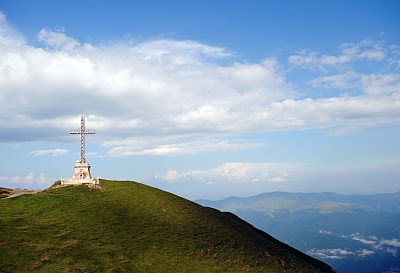Religion in Romania

Geographic Position:
Romania is a beautiful country situated in southeast Europe, on the Danube river, north of the Balkan Peninsula, and on the northwest shore of the Black Sea. The Danube Delta as well as the south and central part of the Carpathians are almost entirely within Romanian territory. Romania neighbors Bulgaria to the south, Serbia to the southwest, Hungary to the northwest, Ukraine to the north and east, the Republic of Moldova to the east, and the Black Sea to the south.
Politics:
Romania is a semi-presidential Republic, lead by a bicameral Parliament and a President, elected every four years. Of the European Union member countries, Romania is the 7th largest based on population (22 million) and the ninth largest based on territory (238 391 km²). Bucharest is the country’s capital and the country’s largest city, as well as EU’s sixth largest city by population (1.9 million). In 2007, Sibiu was chosen as the European capital of Culture, due to its heritage and cultural richness. Romania has been a member of UN since 1955, the EU since January 1st 2007, NATO since March 29th 2004, the IMF since 1972, and other international organizations.
Social Aspects:
Romania’s official language is Romanian. Despite the fact that Romania is surrounded by Slavic speaking nations, its language is Latin based, counting as one of the five romantic languages: French, Spanish, Portuguese, Italian, Romanian. Other languages recognized are Hungarian (spoken by 6.5% of the population) and Romani (spoken by 1.1% of the population.
Ethnically, 88.6% of the population is Romanian, with 6.5% Hungarian, 3.2% Romaa, and 1.7% other minorities.
Some of the Romanian specialty dishes include mici (grilled meatballs), sarmale (meat wrapped in cabbage leaves), tochitura (pork stew with garlic and onions) and cozonac (a sweet bread desert).
Religious Background:
Despite the spine-chilling tales of Dracula and vampires, the Romanian population is 99% Christian, with a great love and belief in God. While Romania is a secular state, without a declared state religion, according to the 2002 census 18,806,428 citizens, representing 86.8% of the population declared themselves Eastern Orthodox. Of the remaining population, 4.5% are Roman-Catholic, 3.7% are Reformed, 1.5% are Pentecostal, 0.9% are Greek Catholic, 0.6% are Baptist, and other religions comprise less than 0.1%. In Dobrogea, southeast Romania, there is a small Muslim minority (0.3%) and atheist (0.04%).
In August 2010 there were 18,300 declared churches in Romania. The financial budget dedicated to the construction and renovation of churches was 54.6 million Romanian lei in 2010, and 28.3 million in 2011.